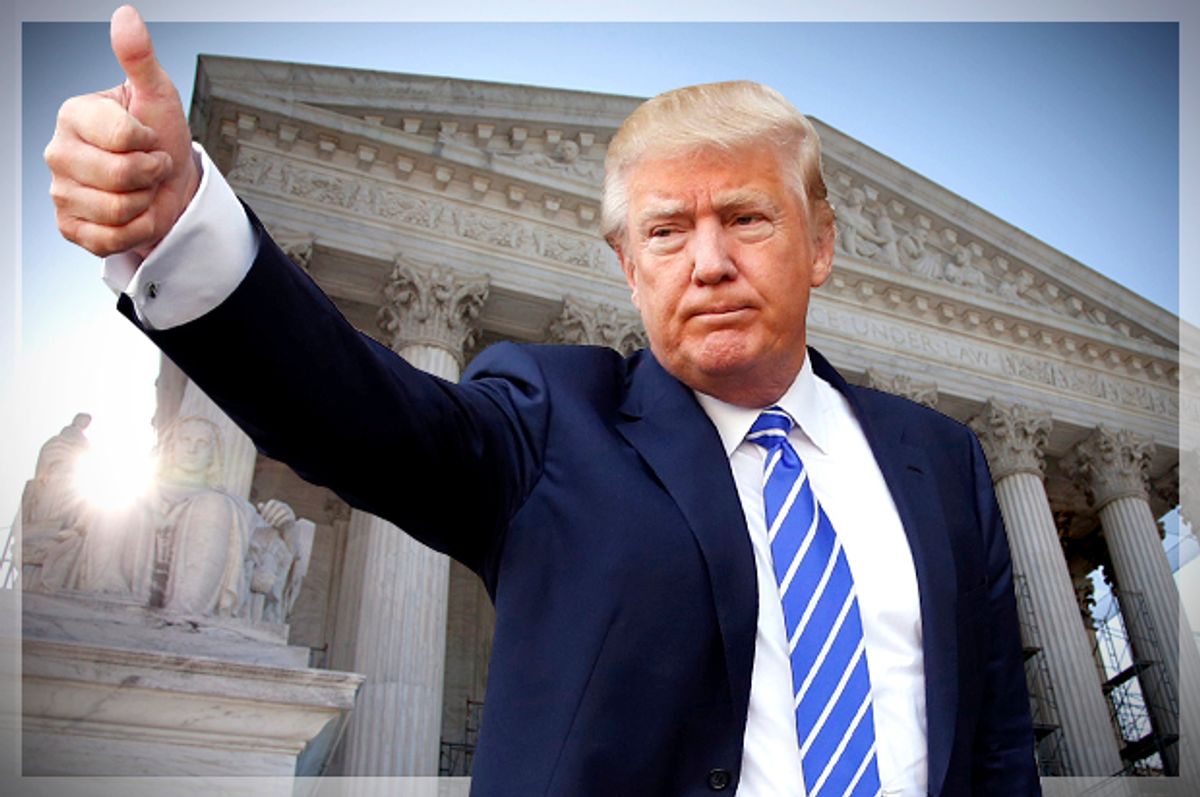Without question, one of the areas in which President-elect Donald Trump will most transform America is in its judiciary.
When he takes office, Trump will have to fill 103 judicial vacancies, nearly twice as many as the 54 that President Obama had to fill at the start of his presidency in 2009, according to The Washington Post on Sunday.
The unusually large number of vacancies can be attributed to Republican obstructionism. After the GOP took over the Senate in 2015, they established a policy of not confirming many of President Obama's nominees, most notably by refusing to even conduct a hearing for Merrick Garland after Obama chose him to replace Justice Antonin Scalia earlier this year.
Aides to the Trump transition team also told The Washington Post that remaking the federal judiciary is a priority for both Trump and Vice President-elect Mike Pence, who is expected to be a major adviser on judicial appointments. Incoming White House Counsel Don McGahn is also expected to be a crucial voice when it comes to filling the judiciary, with conservative think tanks like the Federalist Society and the Heritage Foundation planning on coming up with lists of names.
Currently Republicans only hold 34 percent of America's 673 district judgeships, according to judicial nominations expert Russell Wheeler in an interview with The Washington Post, but that number could increase to roughly half by mid-2020 because of Trump. Similarly, Democratic judges on the circuit court could be expected to fall from the current 51 percent to as low as 43 percent. The one silver lining for Democrats, Wheeler noted, is that many of the judges expected to step down over the next years were appointed by Republican presidents.
When it comes to the Supreme Court, Trump has already committed to pick from a list of 21 names that he released in September. Whereas all of the current Supreme Court judges attended Ivy League schools and served on one of the coasts, Trump's list makes a point of focusing on judges from America's heartland (the one exception being military judge Margaret A. Ryan in Washington). At the same time, the list only contains judicial conservatives, with Trump giving credit to the Heritage Foundation and Federalist Society for helping him draw it up.



Shares